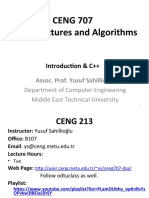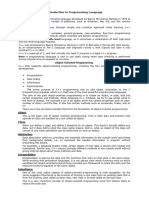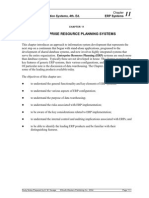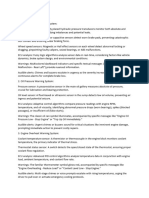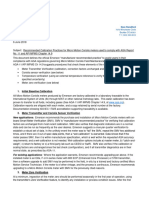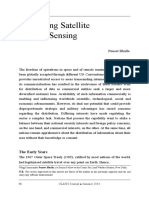0% found this document useful (0 votes)
27 views8 pagesFull CPP Notes
C++ is a general-purpose programming language created in 1985, known for its object-oriented features and rich library. The document covers key concepts including program structure, data types, control flow, functions, object-oriented programming, inheritance, polymorphism, file handling, exception handling, templates, and the Standard Template Library (STL). It emphasizes the importance of regular practice and projects for mastering C++.
Uploaded by
alfirdousclasses76Copyright
© © All Rights Reserved
We take content rights seriously. If you suspect this is your content, claim it here.
Available Formats
Download as PDF, TXT or read online on Scribd
0% found this document useful (0 votes)
27 views8 pagesFull CPP Notes
C++ is a general-purpose programming language created in 1985, known for its object-oriented features and rich library. The document covers key concepts including program structure, data types, control flow, functions, object-oriented programming, inheritance, polymorphism, file handling, exception handling, templates, and the Standard Template Library (STL). It emphasizes the importance of regular practice and projects for mastering C++.
Uploaded by
alfirdousclasses76Copyright
© © All Rights Reserved
We take content rights seriously. If you suspect this is your content, claim it here.
Available Formats
Download as PDF, TXT or read online on Scribd
/ 8
































